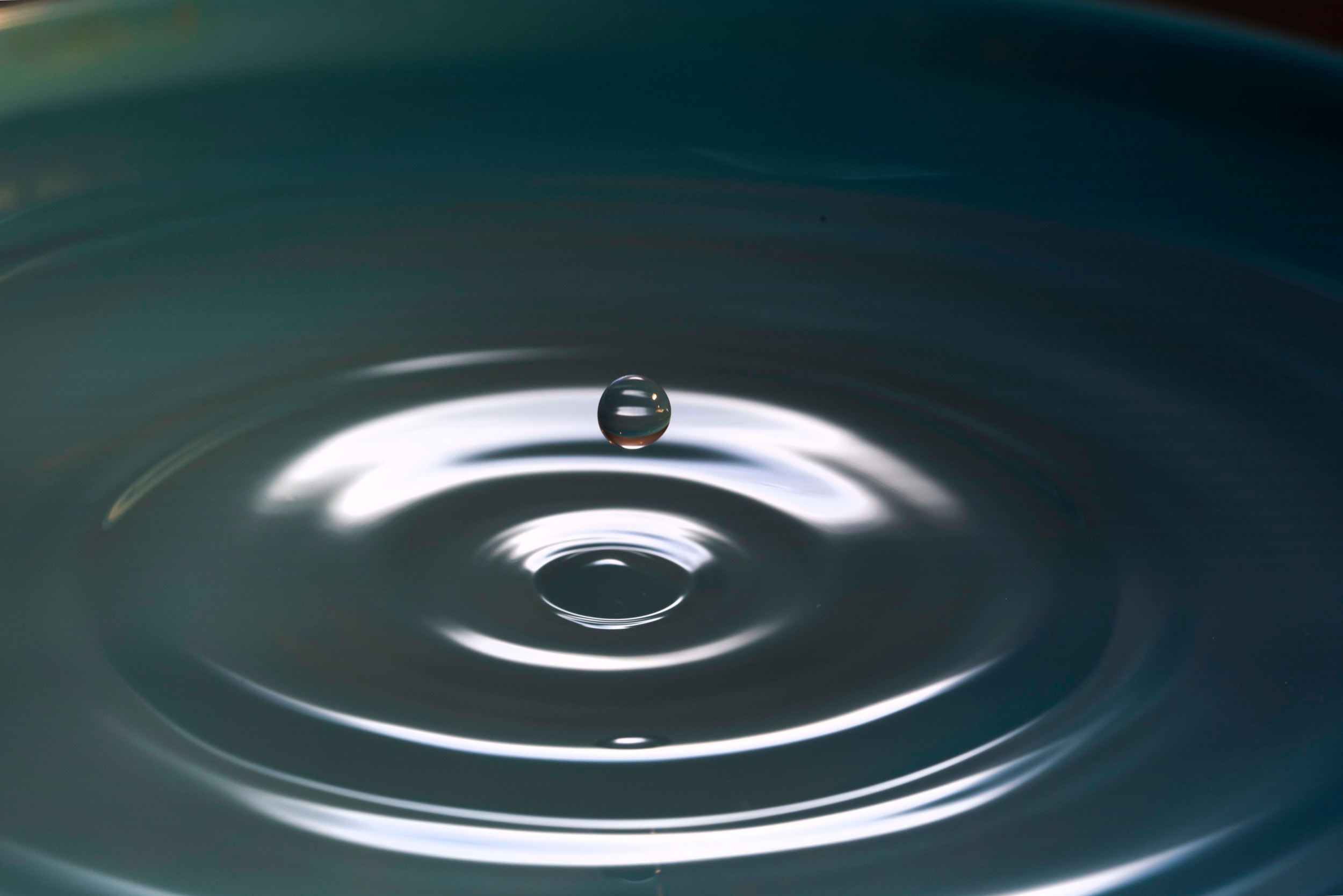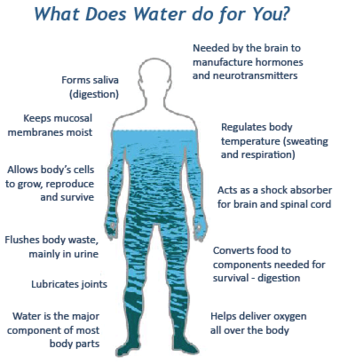Water, Drink it up
Our Planet is 71 % water with our oceans containing 96.5 percent of all the Earth’s water.
“ Muscles & Kidneys are 79% water
Brain & Heart are 73% water
Our Lungs are 83% water
Our skin is 64% water
Our bones contain 31% water”
Water is all around us, it’s in the soil, in the pipes, the atmosphere and inside us too.
Heck, our bodies are composed of an average of 60% water and literally we have water in ever vital organ and system.
What’s really interesting about water is, unless its frozen, its never staying still.. The same goes for inside our bodies (which is a great thing cuz if water freezes inside us that means were dead). But that’s what water does, it moves between our cells and it acts a a buffer for filtration.
What water does for us?
Water functions in sooooo many ways insider our body. Besides being a component of cells, organs and tissues, its a constitute of many metabolic reactions. Water aid in digestion, by providing saliva to begin the breakdown then allowing for then water allows for the absorption and transportation for nutrients. It plumps up our skin and cellular walls, acting as a lubricant and cushion for our tissues and joints. This also keeps our body temperatures well regulated. Water allows for the kidneys and liver to flush out toxins, while also allowing waste products to be carried out more easily (gastric motility). It distributed oxygen throughout and keeps chemicals and hormones moving. This helps to stabilizing our blood pressure and heartbeat.
So like everything we are or do requires water. That’s why we could only survive 3 days without consuming it.
Why do we need it?
Because we lose it everyday in digestion and perspiration. And because of its critical role in detoxification - you remember that our skin is our bodies largest toxin releasing organ. Our bodies need water so much we classify water as a macronutrient (we need these nutrients in large amounts).
There are several factors that also act as a conflicting factor for our overall H20 status and demand.
Increased physical activity (increases sweating increases the demand)
Increased electrolyte distress (increased urination while consuming diuretics - caffeine, alcohol, sugar)
Interactions with medications (some act as anti-diuretics to decrease urination & increase fluid reabsorption)
Residing in high temperature climates (your perspiration needs to be replenished)
How to get it?
Drink it of course! Maybe you even got a little thirsty reading this article?
The standard recommendation for water is drinking 8, 8 ounce glasses a day = 64 fl oz. And this is a great starting point for sure. If you are someone who consumes coffee or alcohol on the regular then your need to increase the number of cups per day. By how much? The general rule is to match the quantity. So say you have an 8oz glass of wine, then add 8oz more water to your intake. Are you physically active? Then you need to increase your intake 8oz for each 30 minutes of activity. Example, 1 workout for 45 mins, therefore I need to add another 12 oz of water to my daily need. Someone that works out and consumes diuretics….well you can see how easily a person can be dehydrated.
Drink up you say? Let’s be honest, sometimes we resist drinking water. We just don’t feel like it or we don’t want to be peeing all the time. But let me tell you, our bodied are adaptable and get accustomed when we increase our water supply. The first 2 days can be frequent but then we strengthen ourselves and our bladders to not go so often.
Did you know that your body signals your brain that it needs of more water? Yup, our brain does, though it isn’t as great at interpreting the message and sometimes we interpret it as “hunger”…..so we eat. Another signal that can be honed in on, with great practice and mindfulness I’m sure (I haven’t mastered that yet tho). I do use this knowledge as a tool. If I’ve just eaten a balanced meal and I still feel the urge to eat I’ll drink an 8oz glass or water first and wait 15 minutes to see if I’m actually hungry or thirsty.
MAth TIME!! Lets calculate your water needs:
Body weight * 2/3 (0.67) = _________ fl oz needed
ex. 130 * 0.67 = 87.1
Then add your factors. + 12 oz for my workouts + 6 oz for my caffeine.
ex. (130 * 0.76 ) + 18 = 105.1 ounces a day.
Other factors to consider
Foods, especially those that are water-rich (ie. lettuce, leafy greens, cucumbers, bell peppers, summer squash, celery, berries, and melons) account for a portion of our overall daily intake, On average we consume 20% of our water intake from foods.
The source of water you are drinking. I referring to where you fill our cup. Is it tap water, filtered tap water, spring water, bottled spring water, or bottled purified water. Okay now don’t beat yourself up if the only water you drink is tap or all bottled. I’m just giving more info to help guide your decisions.
Tap, the most economical choice is either provided by a well on your property or is provided by your municipality. This trouble with tap water is that it contains microbes, particles, plastics, metals, chlorine, fluoride and other toxins [s]. Filtering your tap water is recommended for sure but not always attainable and often we leave the filters in use for too long they become ineffective in removing all the harmful microbes. Having a reverse osmosis unit for your home has been indicated in my research as the best way to consume tap water. iI honestly like this option the best too as it is the most planet friendly, especially when using reusable drink and/or containers.
Spring vs. Purified Bottled water
So spring water is exactly that, the water has been sourced from a spring. Spring water will have exactly what nature intended, beneficial natural minerals that have been filtered in by the earth & soil.
Purified water on the other hand is sourced by a municipality and then underwent filtration and then treated to remove additional substances like pathogens and chemicals. The EPA has significantly stricter purity standards on bottled water than those applied to your standard drinking/tap water to ensure the safety.
Here’s a fun article that reviewed and scored Bottled water ranked from nice to absolutely disgusting
Whichever you decide just drink enough for you to feel well and hydrated.
How do I make sure I get my intake
Before I go to bed at night I make sure I have 8oz of water to drink right as I’m waking up. I have that before I do anything else.
I use large reusable water bottles during the day. Mine is a 32oz and I aim to fill it 3x’s. Do I always? No. But it’s a good goal for most days.
I also make sure I eat a lot of fruits and veggies, not just for all the nutrients, but for the fiber and water content also.



